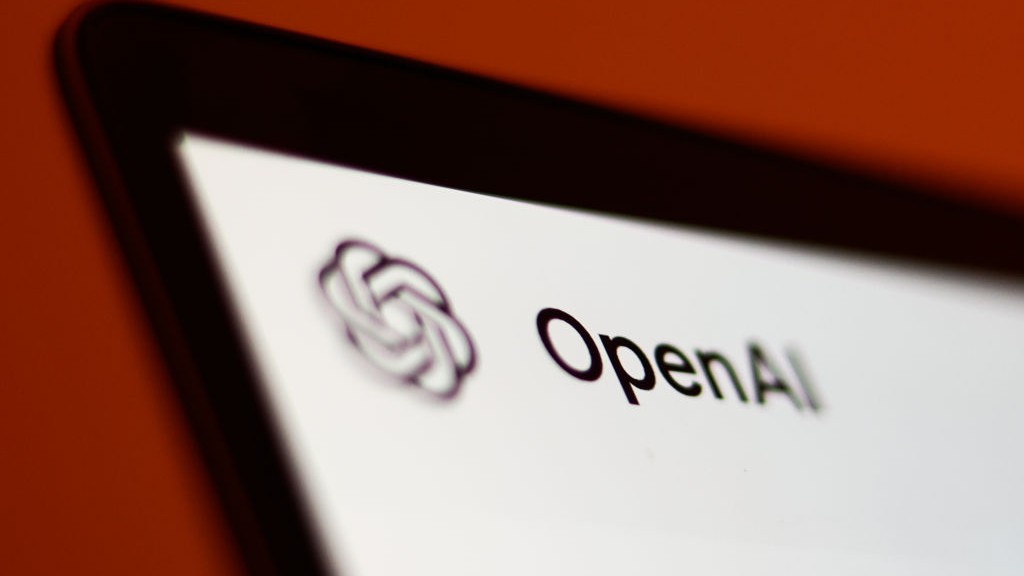OpenAI may endure massive $44 Billion losses before seeing profit in 2029 partly due to Microsoft tie-up: "The partnership with Microsoft might mean OpenAI earns less from each dollar of revenue"
How many funding rounds will OpenAI need before it actually makes money?

What you need to know
- A report suggests OpenAI will lose $44 billion before it becomes profitable in 2029.
- The reported losses are attributed to the cost of training and running advanced AI models, employee salaries, data, and more.
- Microsoft will likely get a 20% cut of OpenAI's revenue.
According to The Information, the ChatGPT maker could make $44 billion in losses before potentially becoming profitable in 2029. The report further estimates the company's revenue generation to have scaled $100 billion. The projections are based on the outlet's analysis of OpenAI's financial documents.
The projections also include the hundreds of millions of dollars spent on training and running advanced AI models, employee salaries, acquiring data, and more. While it's essential to take the information with a grain of salt as the company's trajectory may change based on several factors, it paints a picture of how much money goes into funding AI projects and keeping operations running.
OpenAI CEO Sam Altman recently published a blog post highlighting that superintelligence might only be "a few thousand days away," but it'll "take $7 trillion and many years to build 36 semiconductor plants and additional data centers" to bring the vision to fruition. Perhaps more interesting, a former OpenAI researcher corroborated Altman's findings but warned that the AI firm isn't well-equipped to handle all it entailed.
Microsoft is arguably one of OpenAI's most prominent investors, betting $13 billion on the ChatGPT maker. While the tech giant has heavily integrated OpenAI's AI smarts across its tech stack, where does the AI firm's project leave it?
While speaking to Business Insider, Kate Leaman, the chief market analyst at AvaTrade, indicated:
"Developing advanced AI takes a lot of time and money, so it's expected that OpenAI would face high costs before it starts making a profit. The partnership with Microsoft might mean OpenAI earns less from each dollar of revenue, but it could help the business grow significantly in size, meaning the impact may not be as bad as initially anticipated."
The Information details how Microsoft will benefit from its partnership with OpenAI — a tad more than previously thought. According to the analysis, Microsoft will potentially get a 20% cut of OpenAI's revenue stream.
All the latest news, reviews, and guides for Windows and Xbox diehards.
Living beyond our means are we?
Over the past few months, OpenAI has gained broad popularity for frequently featuring in the media. It all started when a report emerged claiming that the ChatGPT maker is on the verge of bankruptcy with projections of $5 billion in losses.
But how did the OpenAI land itself in such a challenging position? The hot startup generates $2 billion annually from ChatGPT and $1 billion from LLM access fees, translating to an approximate total revenue of between $3.5 billion and $4.5 billion annually. However, it spends $7 billion on training its AI models and $1.5 billion on staffing.
Market analysts and experts indicated that the firm needs another round of funding to keep its business afloat. Luckily, it recently raised $6.6 billion from investors, including Microsoft, NVIDIA, Thrive Capital, and more, pushing its market valuation to $157 billion. Apple wiggled its way out of the exercise, potentially indicating it's seeking a unique path focused on privacy and security in the AI landscape.
For context, OpenAI's latest funding round brings the total number of funding rounds the ChatGPT maker has had to 8. While the firm might have evaded bankruptcy, the funding round comes with critical concerns. For instance, the OpenAI needs to transform into a for-profit entity within the next two years or risk returning the money raised by investors.
A separate report claims that investor interest in AI technology might fade, leaving startups invested in the technology with the shorter end of the stick and insufficient funds for their advanced AI projects. This decline could open a can of worms for the ChatGPT maker, including outsider interference and hostile takeovers from investors like Microsoft. Investors raised concern over Microsoft's expenditure on AI projects, citing difficulty establishing a clear path to profitability.
Incidentally, a report recently highlighted that market analysts and experts predict that Microsoft might potentially acquire OpenAI within the next three years as it burns through wads of cash chasing the AI bubble. And as it now seems, OpenAI might not be over the hump just yet.
🎃The best early Black Friday deals🦃
- 📺LG Curved OLED Monitor (32-inches) | $803.54 at Amazon (Save $721!)
- 💻Dell XPS 16 (RTX 4070) | $2,399.99 at Dell (Save $950!)
- 🔊2.1ch Soundbar for TVs & Monitors | $36.99 at Walmart (Save $63!)
- 💻Dell G16 Gaming Laptop (RTX 4070) | $1,299.99 at Dell (Save $450!)
- 📺LG C4 OLED 4K TV (42-inches) | $949.99 at Best Buy (Save $450!)
- 💻Samsung Galaxy Book4 Edge (X Elite) | $849.99 at Best Buy (Save $500!)
- 💾SK hynix SSD Thumbdrive (1TB) | $62.99 at Newegg (Save $27!)
- 💻Dell XPS 13 (X Elite) | $999.99 at Best Buy (Save $500!)
- 💻HP Envy 2-in-1 14 (Ryzen 7) | $599.99 at Best Buy (Save $400!)
- 💾Seagate Xbox Expansion Card (1TB) | $149.99 at Best Buy (Save $50!)
More Prime Day deals and anti-Prime Day deals
We at Windows Central are scouring the internet for the best Prime Day deals and anti-Prime Day deals, but there are plenty more discounts going on now. Here's where to find more savings:
- Xbox controller deals: Walmart | Target | Best Buy | Amazon | Newegg
- Xbox SSD storage deals: Walmart | Target | Best Buy | Amazon | Newegg
- Gaming headset deals: Walmart | Dell | Target | Best Buy | Amazon
- MicroSD storage deals: Walmart | Target | Best Buy | Amazon | Newegg
- Gaming handheld deals: Walmart | Target | Best Buy | Amazon | Newegg
- Laptop deals: Walmart | Target | Best Buy | Amazon | Newegg
- Copilot+ AI laptop deals: Walmart | Target | Best Buy | Amazon | Newegg
- Monitor deals: Walmart | Target | Best Buy | Amazon | Newegg
- Mini PC deals: Walmart | Target | Best Buy | Amazon | Newegg
- Gaming keyboard deals: Walmart | Best Buy | Amazon | Dell | Newegg
- Gaming mice deals: Walmart | Best Buy | Amazon | Dell | Newegg

Kevin Okemwa is a seasoned tech journalist based in Nairobi, Kenya with lots of experience covering the latest trends and developments in the industry at Windows Central. With a passion for innovation and a keen eye for detail, he has written for leading publications such as OnMSFT, MakeUseOf, and Windows Report, providing insightful analysis and breaking news on everything revolving around the Microsoft ecosystem. While AFK and not busy following the ever-emerging trends in tech, you can find him exploring the world or listening to music.

